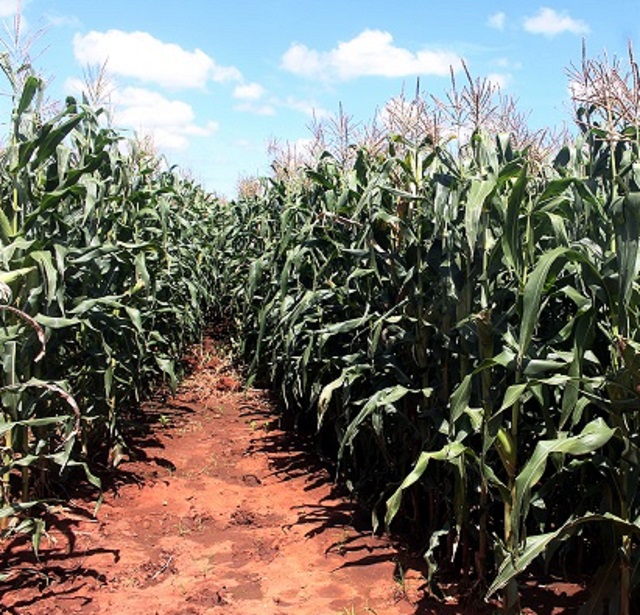
Thupeyo Muleya, Beitbridge Bureau
A partnership between the Government and the United Nations Development Programme (UNDP) to promote irrigation-based farming is set to transform agriculture production in Beitbridge district.
The Zimbabwe Resilience Building Fund, being sponsored by the UNDP and the Government, and implemented through a host of NGOs started in 2017 and will end in June next year.
A consortium of stakeholders including; International Rescue Committee, Cesvi, Bio Hub, Matopo Research Institute and Cimmyt are running various projects under the Program for Growth and Resilience (PROGRESS).
Cesvi’s Area Co-ordinator for Beitbridge, Mr Munyaradzi Katemaudzanga, said yesterday that they were hard at work on the ground revamping operations at River Ranch, Ndambe Phase 2, Jalukange, Bili, Dombolidenje, Shashe, Kwalu, Tongwe, and Tshikwalakwala irrigation schemes.
He said a further 112 smallholder farmers will also benefit from a citrus farming venture at the 100-hectare Kwalu irrigation Scheme in Ward 11.
“At River Ranch a centre pivot up and running and at Dombolidenje we set up a solarised pivot to boost production.
With regards to Ndambe 1, we have equipped the project with modern drip facilities and currently we are in the processes of solarising Jalukange and Bili. Power outages have been affecting production in these identified areas,” said Mr Katemaudzanga.
He said the Kwalu project has 60 ha under centre pivot which is divided into 34ha and 26 ha portions.
The remaining 40 ha, the official said had been put under flood irrigation.
Mr Katemaudzanga said following the resuscitation of operations at Kwalu, the plot holders have been able to grow citrus, sugar beans seed, maize, wheat, fodder, potatoes and chia.
“In addition, fish production is also undertaken with the tilapia bream being reared into the night storage dam.
“Recently 8 400 citrus trees were planted on the 34-ha centre pivot. This translate to 75 trees per person and the trees are expected to start bearing, but this will be what is called a fly crop with an estimated crop yield of 3,5 tonnes/ ha thus they may start by harvesting 120 tonnes,” he said.
The official said according to their projections, after 15 years, the farmers would be able to harvest about 2 000 tonnes and realising an estimated gross income of US$300 000.
He said the amount had been pegged on assumptions that the fruit shall be sold at the local juice factory at US$0,15 per kg.
Mr Katemaudzanga said citrus production was very lucrative and that the objective was to produce enough for both the local and international markets.
“This means that 50% would go for export, 25% local and regional sales, while 25% of the produce will be delivered to the Beitbridge Juice Factory to promote local industries.
“The Kwalu project beneficiaries are overwhelmed and are motivated by the success of a similar initiative that is being rolled out at Shashe in Ward 8,” he said.
The official added that capacity building of the plot holders and agriculture extension workers where irrigation projects were being resuscitated had been conducted.
Mr Katemaudzanga said the irrigation projects were being modernised to adapt to the effects of climate change.
Dry-land farming is not viable under climatic conditions in Beitbridge district hence the need to prioritise irrigation farming.
It is understood that Beitbridge needs at least 450mm per season for crops to do well, but in the last two seasons rainfall has been very erratic. @tupeyo
